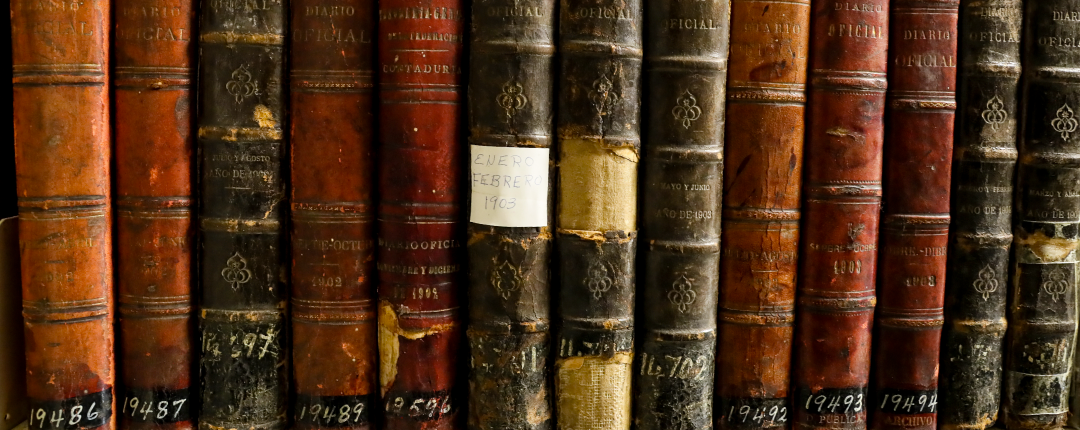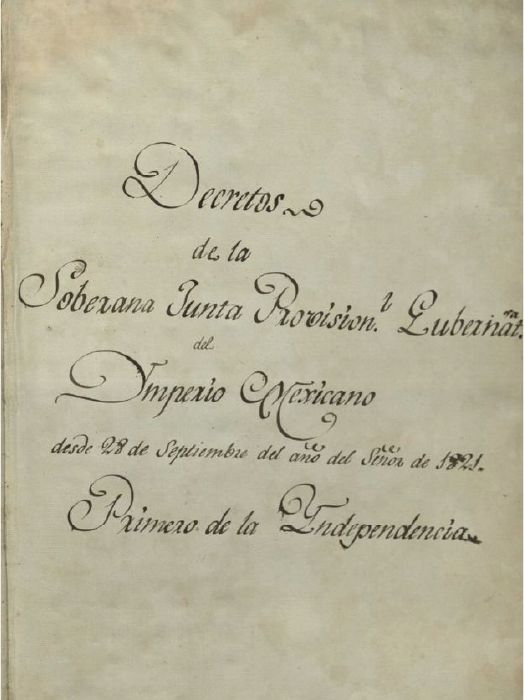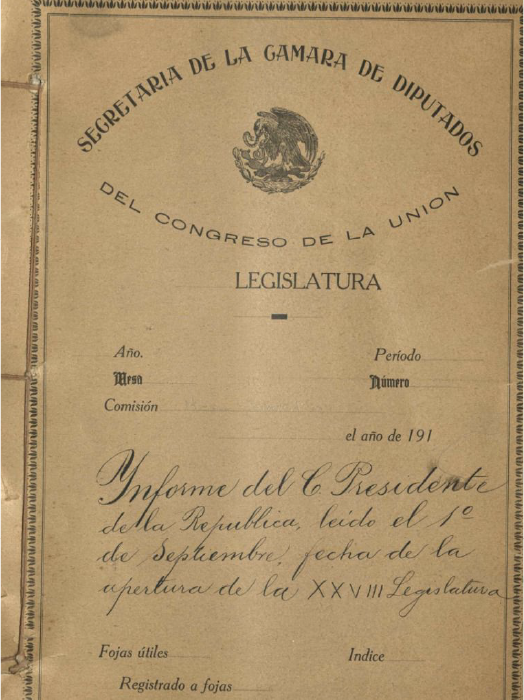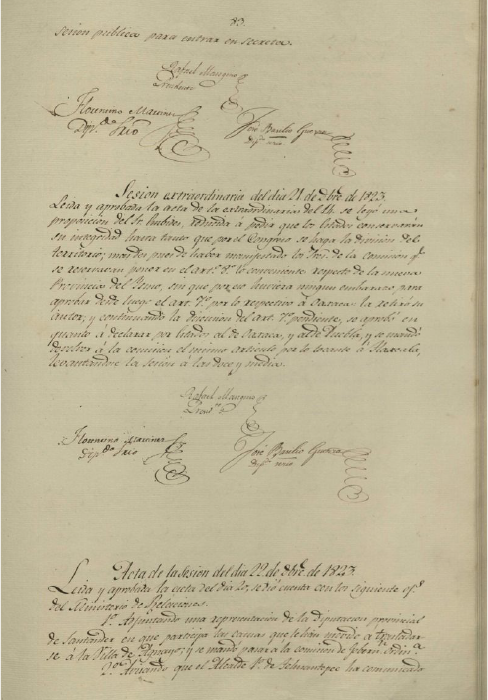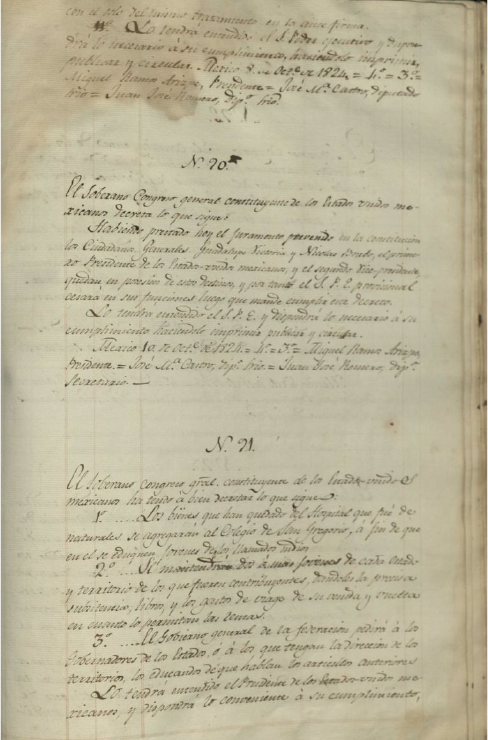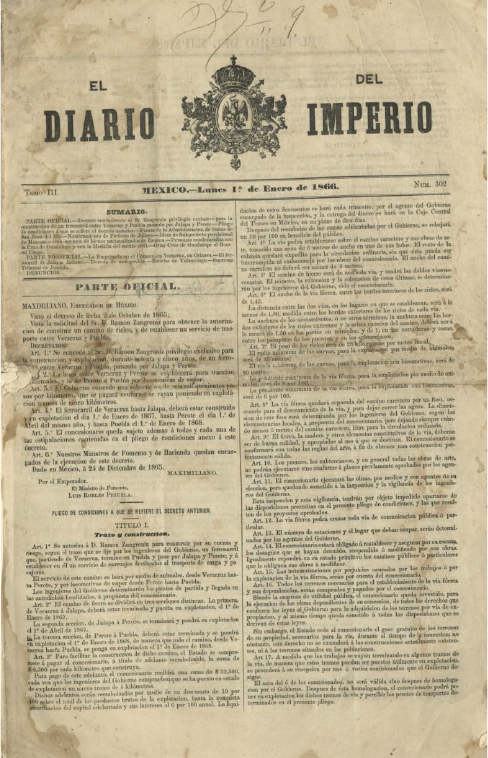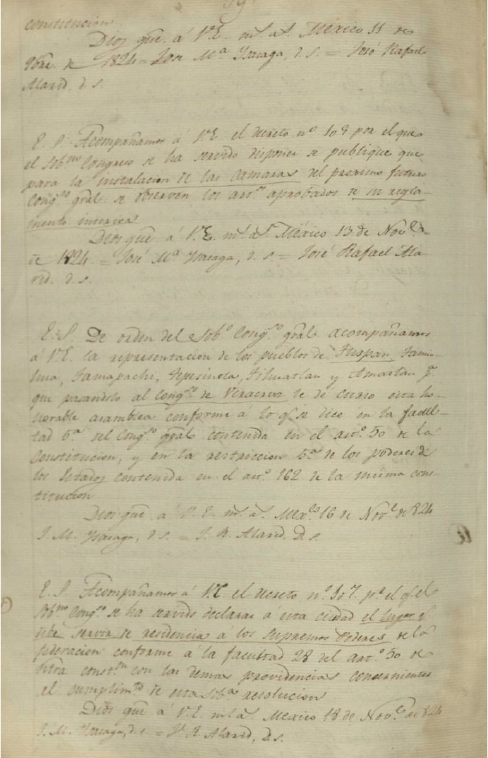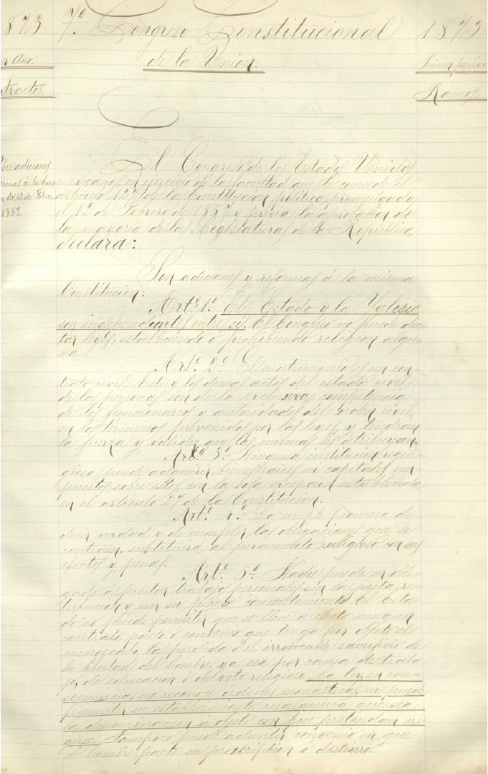The General Library of the H. Congress of the Union was born from an initiative presented before the plenary session of the Chamber of Deputies on August 24, 1935, with the aim that its services were also for the benefit of society.
On November 12 of the same year, the proposal was expanded by Deputies Luis Mora Tovar, Demetrio Bolaños Espinosa and Carlos A. Calderón, who presented the initiative to install and reorganize the Public Library of the H. Congress of the Union, merging the collections of the Library of the Chamber of Deputies, the Chamber of Senators and the Treasury Accounting Office.
Another of the key aspects of the initiative, was contemplating the enrichment of its bibliographic collection through donations and documentary exchange with legislative chambers of other countries, scientific institutions and international organizations.
As of that year, the Library of Congress of the Union was established in the former temple of Santa Clara, located on the streets of Tacuba and Bolívar, in the Mexico City Historical Downtown (Zocalo), however by January 7, 1936, this property was then transferred to the Ministry of Finance and Public Credit, and so the repairing and adaptation work began.
The Library of the H. Congress of the Union was inaugurated on September 4, 1936 by Gonzalo Vázquez Vela, Secretary of Education, on behalf of the President of the Republic, General Lázaro Cárdenas. Since then, the library has been open public, and is located on Tacuba Street 29, in the Mexico City Historical Downtown (Zocalo)
The opening hours are from Monday to Friday from 9:30 a.m. to 9:00 p.m. and Saturdays from 9:30 a.m. to 1:00 p.m. Its bibliographic collection consists of around 142,300 volumes from all areas of knowledge, while its hemerographic collection is made up of 5,000 scientific papers, technical and dissemination publications and newspapers of national circulation.
Upon entering, you will find the catalog of its bibliographic collection and the service module for users to search and consult materials, next to it, is the reading which can host approximately 80 people, and placed in the back, is the journalistic publications area.
Various pictorial, sculptural and performance exhibitions have been held in the reading room corridor, as part of the cultural activities that take place on the compound; as well as theatrical performances, dramatized readings, book presentations and concerts.These activities, carried out within the framework of the San Lázaro Cultural Space, have had an important effervescence and diffusion in this Legislature, and in the last six years there have been 128 open events the general public, which have had an attendance of around 6,000 people.
The General Library, as a public library, has provided its services annually to more than 10,000 people of all ages, academic levels and social strata.
